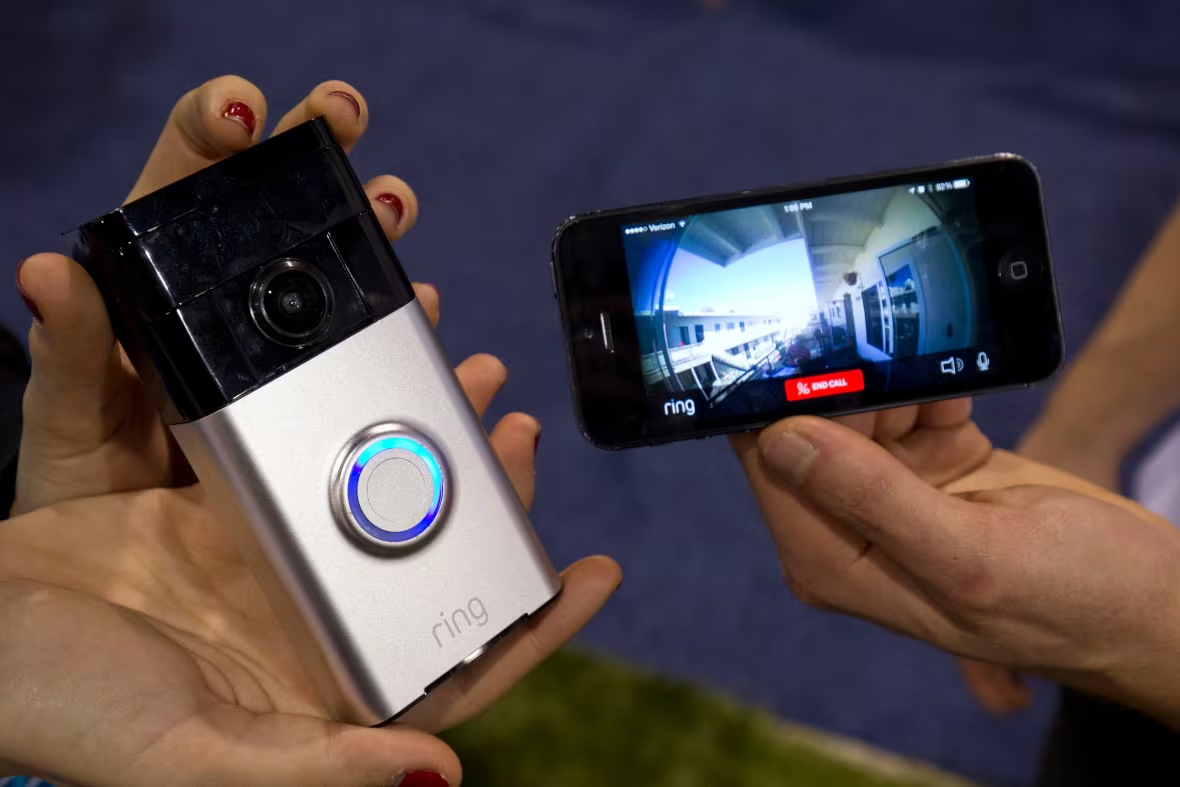Windsor partnership with Amazon Ring doorbell could do more harm than good, experts say
'I don't think more cameras mean more safety,' says Chris Gilliard
Privacy experts, including a University of Windsor law professor, say they're concerned about the possibility of Windsor establishing a partnership with U.S. e-commerce giant Amazon and its Ring surveillance doorbell subsidiary.
Amazon's Ring is a video-enabled smart doorbell that allows users to see in real-time anyone who comes to their doorstep. The technology also contains a microphone and speaker that allows users to communicate with anyone on the other side of the door.
When combined with the Neighbors app, Ring doorbells allow users to share video footage with anyone else in their community, while also allowing users to start conversations about what's going on in their neighbourhoods.
Windsor Mayor Drew Dilkens previously said that he looked into Ring products as a law enforcement tool, calling them a "very effective, very smart tool."
He added that should Windsor pursue Ring surveillance, the Rose City would be the first Canadian city to utilize the system.
University of Windsor Faculty of Law assistant professor Kristen Thomasen, however, believes Ring "raises a number of issues about surveillance in the community."

"Some of the big concerns are that it's going to increase the amount of surveillance of public spaces," she said.
And while Ring products are marketed as providing an additional layer of safety for neighbourhoods and communities, Amazon in the U.S. has also partnered with more than 400 law enforcement agencies to distribute Ring systems as a means of improving community safety.
"There's an important conversation to be had around whether we want to introduce this kind of surveillance network that also is corporate," said Thomasen.
She added that having neighbours or community members easily share security camera footage can also have troubling implications if combined with implicit biases about who is considered suspicious.
"On top of all of that, the video footage that is recorded by Ring can then be shared with the police," she said. "So this might lead to increasing policing over issues that would be non-issues if there wasn't video footage."
There's an important conversation to be had ...- Kristen Thomasen, Assistant Professor, University of Windsor Faculty of Law
Thomasen also expressed concerns about the fact that Amazon currently develops facial recognition technology.
"Is this footage going to be used for targeted advertising for tracking people? How is Amazon going to make use of this evidence?" she said.
Chris Gilliard, an English professor and privacy scholar at Macomb Community College in Michigan, said products like Ring security cameras "produce sort of a heightened sense of anxiety about people you don't think should be in your community."

"In many instances of people having these cameras or participating in neighbourhood watch apps … a lot of the incidents that are reported are of people in a community reporting people that they see who they don't think belong in their community," he said. "I don't think it's accidental that oftentimes, these are black and brown folks."
Gilliard said "I don't think more cameras mean more safety."
Both Thomasen and Gilliard were speakers during a discussion at the University of Windsor on Wednesday about smart technologies — like Ring doorbells — as a means of improving safety.
Listen to Kristen Thomasen discuss Ring surveillance systems with Windsor Morning host Tony Doucette:
With files from Angelica Haggert and Windsor Morning